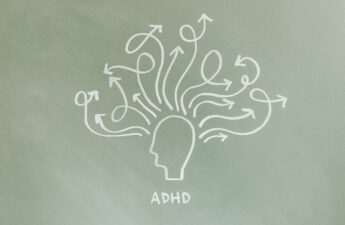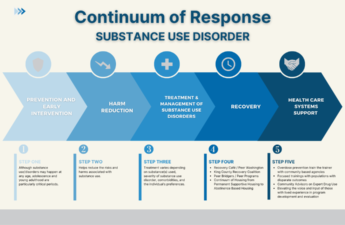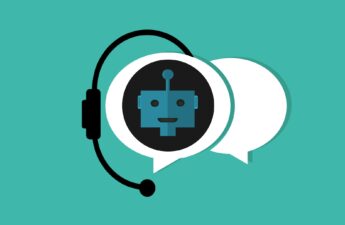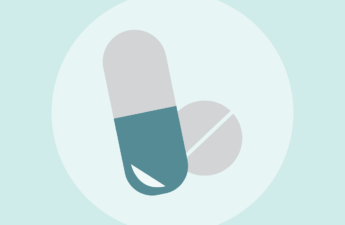Category: Mental Health
More adults than ever have been seeking ADHD medications – an ADHD expert explains what could be driving the trend
The average person has a couple of symptoms of ADHD, so it can be hard to draw the line between ADHD-like tendencies – such as a tendency to lose keys, having a messy desk or often finding your mind wandering during a dull task – and a diagnosable medical disorder.
Do psychedelics really work to treat depression and PTSD? Here’s what the evidence says
Early results from studies around the world have found psychedelic therapy might be effective for treating a range of psychological issues. However, as psychedelic research has grown, limitations of the research have been identified by researchers both within and outside the psychedelic field. One issue is that we aren’t sure whether findings might be due to a placebo effect, which occurs when a treatment works because people expect it to work.
Local resources for those with drug use disorders
Treatment: What’s available and how to access it
Body dysmorphic disorder: what to know about this mental health condition
Actress Megan Fox recently revealed she had body dysmorphic disorder. Many people are dissatisfied with some aspect of their appearance, but people with body dysmorphic disorder are consumed for several hours a day by intrusive thoughts and feelings about their perceived flaws.
Risk of rehospitalization in younger women after heart attack nearly double that of men
Higher rates of risk factors such as obesity, heart failure, and depression among women most likely contributed to the disparity.
Why Finland is the happiest country in the world – an expert explains
Finland comes out top, followed by Denmark and Iceland. Just why Finns are happier than others comes down to a number of factors including lower income inequality (most importantly, the difference between the highest paid and the lowest paid), high social support, freedom to make decisions, and low levels of corruption.
Eating disorders are deadly: What are they, who’s at risk, and what can be done about it
Adolescence is also when eating disorders have the greatest negative effects on health. Five per cent of the general population in North America will suffer from an eating disorder in their lifetime, but few people seek treatment. The prevalence of eating disorders and struggles to access help highlight the need to increase awareness and decrease stigma.
AI chatbots are still far from replacing human therapists
Automated chatbots can be beneficial to people who may need immediate help, but they are not meant to replace traditional therapy.
AI chatbots are still far from replacing human therapists
Automated chatbots can be beneficial to people who may need immediate help, but they are not meant to replace traditional therapy
Exercise is even more effective than counselling or medication for depression. But how much do you need?
We found the higher the intensity of exercise, the more beneficial it is. For example, walking at a brisk pace, instead of walking at usual pace. And exercising for six to 12 weeks has the greatest benefits, rather than shorter periods. Longer-term exercise is important for maintaining mental health improvements. When comparing the size of the benefits of exercise to other common treatments for mental health conditions from previous systematic reviews, our findings suggest exercise is around 1.5 times more effective than either medication or cognitive behaviour therapy.
80% of pregnancy-related deaths in Washington state were preventable, study
Behavioral health conditions, including suicide and overdose, remain the leading causes of pregnancy-related deaths. Other common causes were hemorrhage and infection.
Considering going off antidepressants? Here’s what to think about first
Stopping antidepressants abruptly, especially after a long period of use, will make most people – although not everyone – unwell. It’s impossible to tell in advance who will be affected, so slow dose reduction is advisable. Stopping antidepressants (or tapering down the dose) too rapidly can cause antidepressant discontinuation syndrome in around 20% of people.
Mental Health Care Must Promote Wellness, Not Just Treat Illness
The nation’s mental health care system is currently focused almost exclusively on preventing and treating mental illness — conditions like depression, anxiety, and personality disorder that adversely affect a person’s mood and behavior. Although these are critical factors in mental health, so too are the components of life that are associated with feeling good, finding happiness and meaning, connecting with others, and feeling engaged — qualities that can be collectively described as positive mental health, or mental wellness.
Use of psychedelics to treat PTSD, OCD, depression and chronic pain – a researcher discusses recent trials, possible risks
So it’s important to keep that in mind when we look at the results from some of these recent trials that these are not drugs that are being administered in isolation. You are not taking home a bottle of pills and taking those twice a day as you would, say, an antidepressant. These are administered in a very particular way.
A journey from work to home is about more than just getting there – the psychological benefits of commuting that remote work doesn’t provide
During the shift to remote work, many people lost this built-in support for these important daily processes. Without the ability to mentally shift gears, people experience role blurring, which can lead to stress. Without mentally disengaging from work, people can experience burnout.














